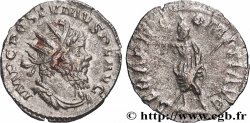MONNAIES 47 (2011)
Starting price : 950.00 €
Estimate : 1 500.00 €
Realised price : 1 573.00 €
Number of bids : 9
Maximum bid : 1 573.00 €
Starting price : 950.00 €
Estimate : 1 500.00 €
Realised price : 1 573.00 €
Number of bids : 9
Maximum bid : 1 573.00 €
Type : Douze litrai
Date: c. 214-212 AC.
Mint name / Town : Sicile, Syracuse
Metal : silver
Diameter : 23 mm
Orientation dies : 6 h.
Weight : 10,17 g.
Rarity : R2
Coments on the condition:
Exemplaire de qualité exceptionnelle pour ce type monétaire, parfaitement centré des deux côtés. Portrait de toute beauté. Revers de haut relief avec des petits coups en bordure périphérique. Jolie patine grise avec des reflets mordorés. Conserve l’intégralité de son brillant de frappe et de son coupant d’origine
Catalogue references :
Predigree :
Cet exemplaire provient de la collection A. A. S.
Obverse
Obverse legend : ANÉPIGRAPHE.
Obverse description : Tête d’Athéna à gauche, coiffée du casque corinthien à aigrette, avec l’égide autour du cou, les cheveux liés retombant sur la nuque.
Reverse
Reverse description : Artémis chasseresse debout à gauche, vêtue d’une tunique courte, un carquois dans le dos, tirant à l’arc ; à ses pieds, un chien bondissant à gauche.
Reverse legend : SURAKOSIWN / UA/SL
Reverse translation : (de Syracuse).
Commentary
Ce type semble beaucoup plus rare avec ces quatre lettres dans le champ devant Artémis.
This type seems much rarer with these four letters in the field in front of Artemis
This type seems much rarer with these four letters in the field in front of Artemis








 Report a mistake
Report a mistake Print the page
Print the page Share my selection
Share my selection Ask a question
Ask a question Consign / sell
Consign / sell
 Full data
Full data










